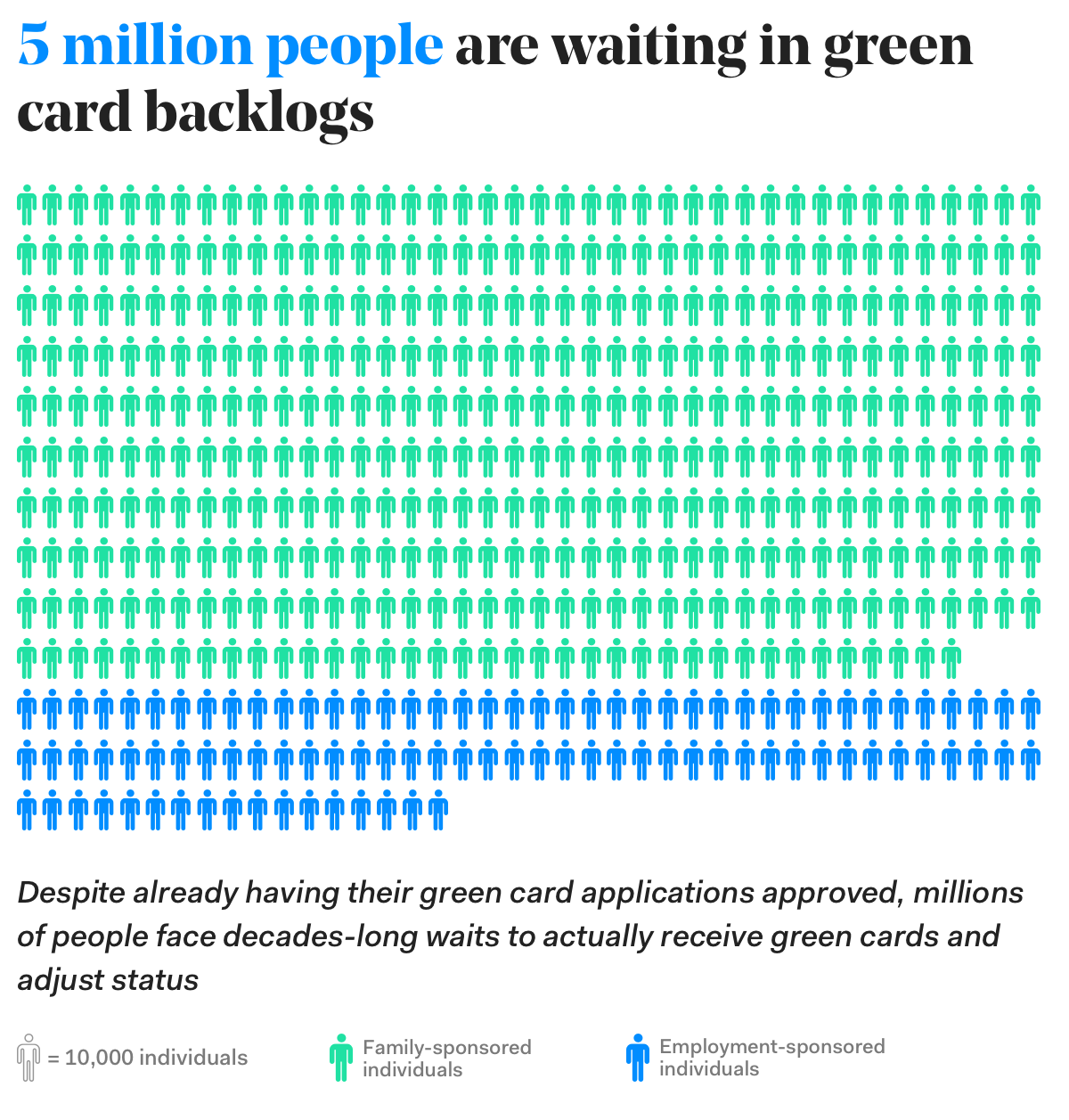"The growing backlogs have been further exacerbated by the fact that hundreds of thousands of green cards under the annual numerical limitations were never issued."
Green card backlogs are breaking the immigration system
Declining immigration levels, including the near-total collapse of employment- and family-based immigration in recent years, have spurred labor shortages and hindered growth as the U.S. economy continues to recover from the impacts of the COVID-19 pandemic.
These declines are due in part to Congress’s failure to meaningfully update existing avenues for immigration in more than 30 years. Outdated numerical caps on the number of visas issued each year have created decades-long backlogs for individuals who have been approved for green cards but must wait until one is available for them.

Because of family-based immigration backlogs, roughly 4 million people with approved green card applications are waiting to be reunited with their family members who are in the U.S. More than 400,000 individuals already living and working in the U.S. on temporary visas are waiting for employment-based green card availability; including their dependent spouses and children, the backlog includes just under 1 million individuals.
The backlogs have been made worse by the government’s failure in past years to issue hundreds of thousands of green cards that were supposed to be available under the annual numerical limitations. Year after year, U.S. Citizenship and Immigration Services (USCIS) has issued fewer green cards than were was authorized, often because of bureaucratic delays and inefficiencies. Even though Congress included statutory language to ensure that green cards not issued in one year would be added to the next year’s available total, the poorly constructed formula has prevented thousands of green cards each year from “rolling over,” meaning the government never issued any of these visas. (For more information and examples about green card waste, read our explainer here).

